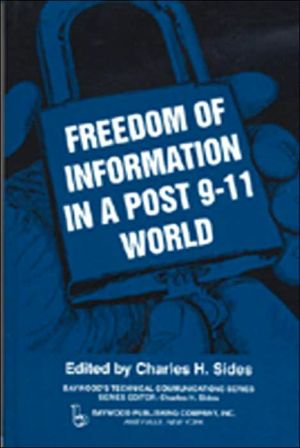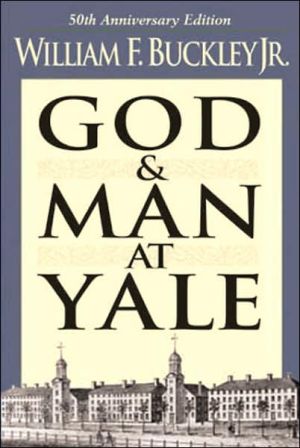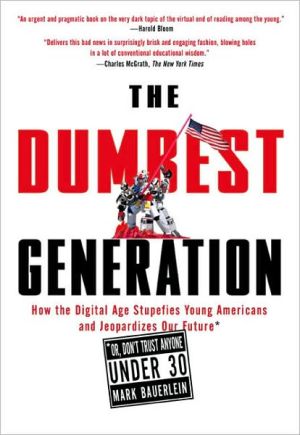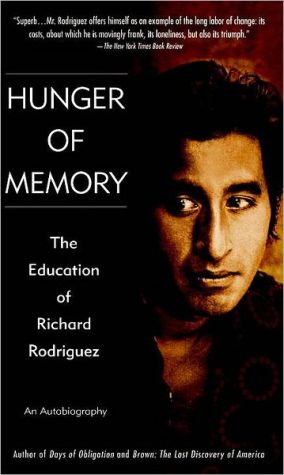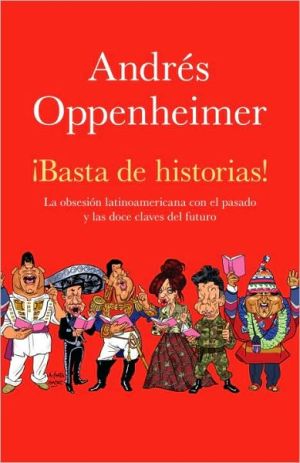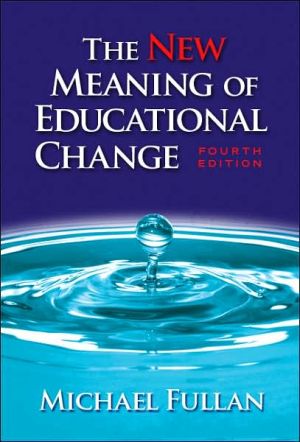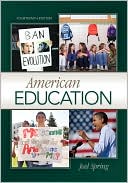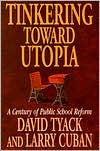Freedom of Information in a Post 9-11 World
Freedom of Information in a Post 9-11 World is, to date, the first international scholarly examination of the impact of the terrorist attack on the United States in terms of how it may alter academic and corporate research, as well as the sharing of information generated by that research, by international colleagues in technological fields. The collection of essays brings together a widely varied panel of communications experts from different backgrounds and cultures to focus their expertise...
Search in google:
The perception and application of the freedom to create, deliver, and receive information may evolve in ways unforeseen prior to September 2001, say these communication specialists from nearly around the world—requests for contributions from Islamic universities were unanswered. Among their topics are whether freedom on Internet mediated communication fosters true to untrue relationships, communal intelligence and the disarming of dangerous information, and 9-11 communicative grammar. Annotation ©2005 Book News, Inc., Portland, OR
Freedom of Information In a Post 9-11 World\ \ Baywood Publishing Company, Inc.\ Copyright © 2006 Baywood Publishing Company, Inc.\ All right reserved.\ ISBN: 978-0-89503-302-4 \ \ \ Contents\ Editor's Note......................................................................................................................................................v Preface............................................................................................................................................................vii CHAPTER 1 Freedom of Information in a Post-9-11 World: Introduction Charles H. Sides.............................................................................1 CHAPTER 2 Information Law since September 11: The USA PATRIOT Act and Other Government Limitations of Expression Rights George F. Bohrer, Jr......................23 CHAPTER 3 Freedom in Internet Mediated Communication (IMC): Does This Foster True or Untrue Relationships? James Poon Teng Fatt..................................39 CHAPTER 4 The New Challenges for Intercultural Encounters Post 9-11 John Chetro-Szivos...........................................................................69 CHAPTER 5 What Should We Teach to Our Students in the Age of the Internet? Fumiko Yoshimura......................................................................91 CHAPTER 6 Communal "Intelligence" and the Disarming of Dangerous Information Robert Carr.........................................................................115 CHAPTER 7 The Open Society and Its Enemies: A Reappraisal Michael Ben-Chaim......................................................................................135 CHAPTER 8 9-11 Communicative Grammar Dorota Zielinska............................................................................................................155 CHAPTER 9 Accessible Information and International Business David Dobrin.........................................................................................185 Contributors.......................................................................................................................................................195 Index..............................................................................................................................................................197 \ Chapter One\ Freedom of Information in a Post 9-11 World: Introduction\ Charles H. Sides\ Congress shall make no law respecting an establishment of religion, or prohibiting the free exercise thereof; or abridging the freedom of speech, or of the press; or the right of the people to peaceably assemble, and to petition the Government for a redress of grievances. -United States Constitution, First Amendment No State shall make or enforce any law which shall abridge the privileges or immunities of the citizens of the United States; nor shall any State deprive any person of life, liberty, or property without due process of law; nor deny to any person within its jurisdiction the equal protection of the laws. -United States Constitution, Fourteenth Amendment\ The morning of September 11, 2001, has already achieved that status in history-similar to November 22, 1963 and July 20, 1969-that if we were present, we remember specifically what we were doing. These watershed dates permit, maybe even compel us to take stock and evaluate our personal or professional value systems or, as is often the case, that inextricable middle ground where the personal and professional meet.\ On September 11, 2001, I had seen my daughter off to high school and was preparing to write my quarterly editorial for the Journal of Technical Writing and Communication, which I edit. At approximately 8:45, I reached to turn off my radio, which was tuned to (I admit it) the "Imus in the Morning" program, and heard Warner Wolfe, the show's New York City-based sports reporter, call in to say that a plane had just hit one of the World Trade Center towers, near where he lives in Tribeca. Don Imus asked if it was a small, private plane, and when Warner Wolfe responded that, "No, it was a huge plane and there is fire and smoke everywhere," I did turn off the radio and opted for the television, where I sat transfixed for the next several hours.\ In those hours and days that followed, one event in particular stood out to me as a writer, editor, and scholar in the technical communications discipline: in two locations, flight manuals for specific jet liners had been found in abandoned automobiles and motel rooms that were traced to several of the hijackers. It is those manuals which led to my call in the editorial I eventually wrote, challenging us to examine the implications of the free access to technical information, and that leads to a question this book addresses: "Is there ever a time when information is too accurate or too available?" Ancient Greeks used the concept of kairos to describe a ripe or exact or critical moment in time-a moment in which many disparate events come together and crystallize to provide unique opportunities for analysis. September 11, 2001, has been a vital moment of kairos in the technical communication discipline. Our analysis of that date, then, should focus on whether this single event will shape new arguments over the limits of free speech and free access to information, especially technical information.\ This question is disarmingly complex because it goes to the core of our profession, as well as to the core of political systems which are founded upon freedoms of speech and access to information. My goal is to put forth a rubric for examining the question, as well as to posit directions governments might entertain in attempting to regulate speech and information that heretofore were considered relatively innocuous. To do this requires a careful look at the history of free speech and access to information, as well as fundamental arguments regarding these freedoms. It also involves differentiating between the evolution of the two.\ HISTORY OF FREE SPEECH\ From the beginning of recorded history approximately 5000 years ago, there has been trace evidence of a growing acknowledgment of speech rights. In the Sumerian civilization, in present-day southern Iraq, approximately 2400 BCE, the first surviving reference to freedom was recorded. Even though the freedom in mind was economic freedom, this document, written in cuneiform, establishes that the concept of freedom was already being examined and debated. A surviving record from Egypt in approximately 2000 BCE describes a dissenting oration the prophet Ipuwer delivered to his king, lamenting over conditions that could have been reported in yesterday's major newspapers: disregard of the law, inadequate treasury resources, and a diminished public safety. Some time later, speech rights were defined for Egyptians in the Maxims of Ptahhotep: "Worthy speech is more hidden than greenstone, being found even among the slave women at the millstone".\ During the first millennium BCE, extraordinary evidence of free speech rights-not equaled yet in some modern countries-began to emerge in several cultures, including Israel, Athens, Rome, and China. The Hebrew Bible is replete with examples of prophets reprimanding kings over their disregard of the people's rights. Importantly, the kings rarely punished such prophets, even if their preaching was deemed a threat to the government. Additionally, there is evidence-both from the Bible and from recovered letters written in the sixth and seventh centuries BCE-that the Hebrew people were also outspoken in dealing with their kings. However, none of this should be taken as support for such modern concepts as a freedom of conscience, for ancient Israel was a theocracy, and under such a governmental system it was unlikely that a comprehensive system of free expression would evolve.\ In Athens, a right to freedom of speech, parrhesia, was recognized for citizens; for example, the governmental assembly was founded upon the right of citizens to speak out, and debates were begun by the herald's words: "What man has good advice to give to the polis and wishes to make it known?". But this right did not extend to women, slaves, or men who were not citizens. Moreover, there were clear examples of laws and customs that regulated speech. One of these was the threat of ostracism, by which a citizen could be banished from Athens for ten years. Protagoras incurred this punishment, as well as the burning of his book, by stating that "concerning the gods, I am unable to know either that they exist or do not exist". And of course, the most famous case was that of Socrates who was found guilty of speech which did not recognize the state-sanctioned gods, introduced new ones, and corrupted the young. He was sentenced to death. Furthermore, since the Athenian state had no equivalent to a bill of rights, citizens could impose restrictions on speech simply by exercising the existing democratic processes. As a result of this practice, for example, verbal abuse of the dead was prohibited, while verbal abuse of the living was prohibited only if it occurred in temples, courts, official buildings, and games.\ In Rome, no equivalent of parrhesia existed for citizens; only persons in positions of authority had a right to free speech. Roman leaders as early as 450 BCE, however, restricted speech through the Laws of the Twelve Tables, displayed prominently in the Forum. Defamation was prohibited, as was magical incantation, and the punishment for both was death. Expulsion was also used to silence objectionable speakers; it was extended to teachers whose pronouncements were considered dangerous. There are records of book burning as well. While this was the status of Roman citizens, it did not extend to political debate in the Senate where senators would attack each other and state officials "by every device of invective language, sometimes with little basis of fact". Toward the end of the Republic, political invective was often printed in verse and song, as well as on placards known as libelli, from whence we derive the concept of libel. During the empire, however, speech rights were seriously curtailed, with writers, critics, and philosophers often executed.\ In China, while there was not even a word for "rights," there is evidence from the time of Confucius concerning a tolerance for the expression of ideas. Much of the discourse revolved around debates on government, philosophy, and the idea of virtue with respect to leaders of the state. As that state evolved more and more toward theocratic notions of a monarch, rights of free expression were effectively stamped out.\ Elsewhere in the Middle East, prior to the development of Islam, leaders were often elected as "first among equals" from tribes; governmental actions were mostly informal and democratic, with a certain amount of free expression assumed. This changed dramatically with the advent of Islam and the development of the shari'a, a divinely ordained legal system. Under that system, the state leader became the divine representative of Allah on earth, and any criticism of the government was viewed as heresy.\ In Europe, following the fall of the Roman Empire, issues of free speech lay dormant for centuries. However, in Iceland in 930 CE, the Althing, an assembly of chieftains, was formed for the purpose of making laws. While only chieftains could vote, the assembly was held outdoors and there is evidence that observers participated freely in the discussion of issues. Elsewhere in Europe, the power of the monarchy had developed to such an extent that free speech was often risky.\ In England, for example, the Magna Carta, signed under duress by King John at Runnymede in 1215, granted free men such rights as trial by their peers, but it did not specifically grant rights to either free expression or free access to information. It did, however, set an important precedent for the development of such rights by establishing that free people can create, through law, rights that even a king may not take away. With regard to speech rights, though, this experience did not stop either kings or parliaments from trying. In 1275, Parliament outlawed "false news or tales by which discord or slander may grow between the king and his people". A century later, this statute was re-enacted, providing for punishment to be administered by the king's council, sitting in the Star Chamber. These secret proceedings established the king's prerogatives in council to use torture in order to extract confessions of wrong doing. Along these same lines, the Treason Act of 1351 includes in its definition of treason even imagining "the death of our lord the King or of our lady his Queen, or of their eldest son and heir", thereby establishing, perhaps, the first recorded incidence of what we would later come to call "thought police."\ Two centuries later, under the rule of Henry VIII in 1539, the "Bloody Statute" was passed by Parliament and made the denial of the doctrine of transubstantiation punishable by burning at the stake, thereby elevating this doctrine to the official faith of the Church of England. His daughter, Elizabeth I, punished Jesuits and other priests who sought converts to Catholicism with death on the grounds that their attempted conversions were equivalent to treason. She also imprisoned Peter Wentworth for having the audacity even to speak out in public, advocating free speech. When the English Bill of Rights was finally passed in 1689, it granted free speech rights only to members of Parliament.\ Freedom of the press was also severely restricted in England. When printing arrived in England in 1450, new laws were soon enacted to deal with the threat of an expanding ability to communicate ideas. These laws included Henry VIII's 1529 list of prohibited books, which included books by Martin Luther and other heretics, as well as any book that reproached, rebuked, or slandered the king and his honorable council. Under the Proclamation of 1538, all books printed in England were subject to a licensing system, the prerogative of which lay solely with the king.\ Given all this as a background, it probably stands to reason that English courts would establish four categories of speech that could be punished as libel. These included: seditious libel, or unfavorable speech about the government; obscene libel; blasphemy; and private libel. English rulers believed that they could not remain in power if they were subject to criticism. Chief Justice John Holt explained this in 1704:\ If people should not be called to account for possessing the people with an ill opinion of the government, no government can subsist. For it is very necessary for all governments that people should have a good opinion of it.\ This law was so broad that any speech which brought the government into disrepute could be punished, even if the criticism of the government was justified. Truth only made the libel worse. Moreover, penalties for violating the laws against seditious libel were particularly severe. William Twyn published a book in 1663 that endorsed the right to revolution; for that expression of speech he was hanged, emasculated, disemboweled, quartered, and beheaded. In 1793, illustrating an increasingly beneficent approach to punishment, John Frost was only disbarred, pilloried, and jailed for stating that he "supported equality, no king, and a better constitution".\ Obscene libel, interestingly enough, was not punished by the British government early on, so bawdy books were printed with impunity. In 1727, this changed when Chief Justice Robert Raymond ruled that obscenity could be punished as a criminal offense, agreeing with the argument that "it tends to corrupt the morals of the King's subjects, and is thus against the peace of the King" [10]. British treatment of obscenity established precedent in the laws of England and the United States for hundreds of years, with obscenity generally defined as the following:\ ... the test of obscenity is this, whether the tendency of the matter charged is to deprave and corrupt those whose minds are open to such immoral influences, and into whose hands a publication of this sort might fall.\ Because Christian doctrine had been protected by British Common Law for over 250 years, it is only natural that blasphemy would become a category of criminal libel. Speech denying God's existence, reproaching Jesus Christ, or bringing any doctrine of Christian religion into disbelief or ridicule was forbidden. As a result, the publisher of Thomas Paine's The Age of Reason was convicted of blasphemy because the book contained a passage which maintained that the savage conduct of persons in the Old Testament had brutalized and corrupted mankind. Statements of this sort were seen not only as offenses against God but crimes against the laws of the land, because they broke the bonds that bound a civil society together.\ The final category of prohibited speech, private libel, included speech that attacked the reputation of another person. This was an ancient concept, as 1000 years ago Anglo-Saxon law provided that any person who insulted another person could have his tongue cut out.\ (Continues...)\ \ \ \ \ Excerpted from Freedom of Information In a Post 9-11 World Copyright © 2006 by Baywood Publishing Company, Inc.. Excerpted by permission.\ All rights reserved. No part of this excerpt may be reproduced or reprinted without permission in writing from the publisher.\ Excerpts are provided by Dial-A-Book Inc. solely for the personal use of visitors to this web site. \ \
Editor's Note PrefaceCHAPTER 1Freedom of Information in a Post-9-11 World: Introduction Charles H. Sides CHAPTER 2Information Law since September 11: The USA PATRIOT Act and Other Government Limitations of Expression Rights George F. Bohrer, Jr. CHAPTER 3Freedom in Internet Mediated Communication (IMC): Does This Foster True or Untrue Relationships? James Poon Teng Fatt CHAPTER 4The New Challenges for Intercultural Encounters Post 9-11 John Chetro-Szivos CHAPTER 5What Should We Teach to Our Students in the Age of the Internet? Fumiko Yoshimura CHAPTER 6Communal "Intelligence" and the Disarming of Dangerous Information Robert CarrCHAPTER 7The Open Society and Its Enemies: A Reappraisal Michael Ben-Chaim CHAPTER 89-11 Communicative Grammar Dorota Zielinska CHAPTER 9Accessible Information and International Business David DobrinContributors Index
